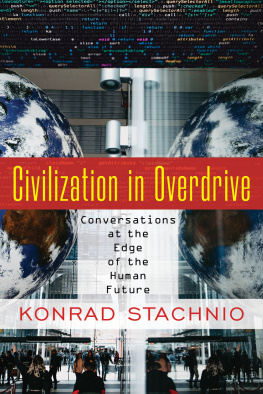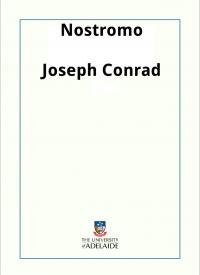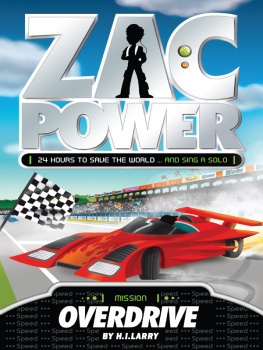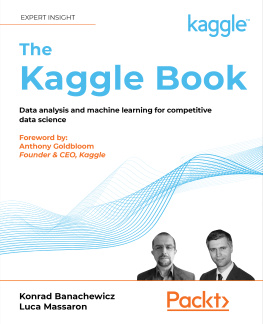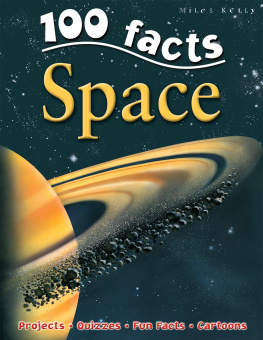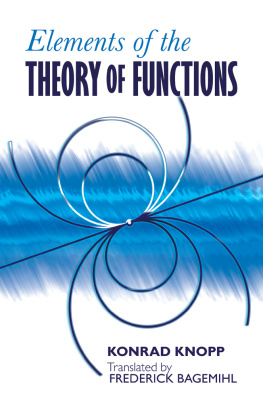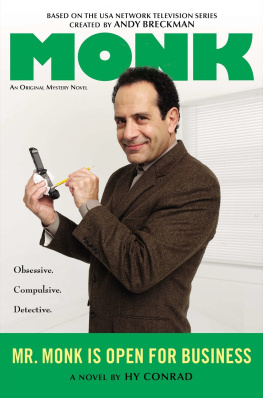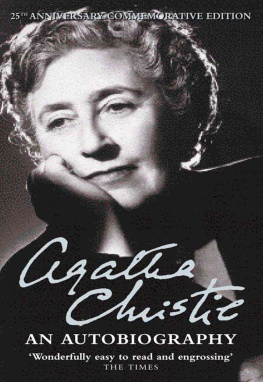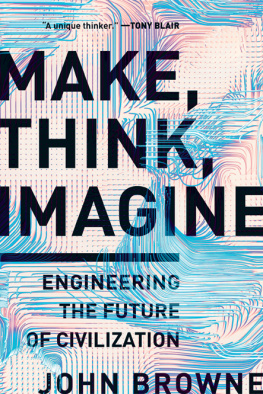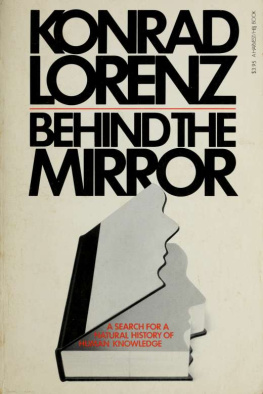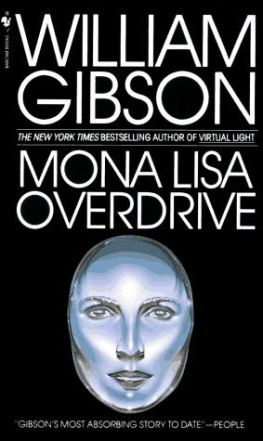Contents

Civilization in Overdrive
Civilization in Overdrive
Conversations at the Edge of the Human Future
10101010101 KONRAD STACHNIO 10101010101

Clarity Press, Inc.
2020 Konrad Stachnio
ISBN: 978-1-949762-28-0
EBOOK ISBN: 978-1-949762-29-7
In-house editor: Diana G. Collier
Cover design: R. Jordan Santos
ALL RIGHTS RESERVED: Except for purposes of review, this book may not be copied, or stored in any information retrieval system, in whole or in part, without permission in writing from the publishers.
Library of Congress Control Number: 2020942814
Clarity Press, Inc.
2625 Piedmont Rd. NE, Ste. 56
Atlanta, GA 30324, USA
https://www.claritypress.com

Interviews

Preface
When I started working on this book, the idea seemed a little crazyeven to me. Because here, I was embarking on a journey to answer the question of what our future would look like. We live in exceptional times full of chaos, full of rapid changes that take place so quickly that we dont stop to even think about them, treating the world more and more as a simulation that we can no longer influence. Reality has long since outrun fiction, as a friend of mine once said.
In such conditions, aiming at answering how our future will look may seem like madness, like something impossible. But this was a deliberate madness that I imposed upon myself, just to see if it was possible to achieve. I truly didnt know where this path would lead. However, I knew that in order to start seriously at all, I had to fully immerse myself in the areas I was studying: NBIC (Nanotechnology, Biology and medicine, Information sciences, and Cognitive Sciences), AI (Artificial Intelligence), geopolitics, religion, philosophy, sociology, and economy. Not so much to sink into it, as to be able to synthesize it.
It took me hundreds of hours to prepare for the conversations with my guests.
I did not want to create an easy book where my interlocutors would repeat clichs and already trending messages. I also didnt want to create another politically correct book. That was precisely why I invited such diverse people to talk with me.
Such diversity is what freedom of speech and real discussion are all about. Everything else isfor memore or less a mental prison, the Thought Police la 1984. It is these sometimes extremely divergent points of view that are, in my opinion, the narrow and dangerous paths that can lead you to the truth, when at some point you see how everything in some strange and unexpected way intertwines into one whole.
I knew that in order to study the subject in depth, I had to talk to people from various worlds, from various cultures, who sometimes almost appeared to each other as species from different planets. Only in this way did I think I could manage to pick out some particles of truth.
When I started my work, I also thought that I knew more or less where it would lead me. How wrong I was. As each conversation progressed, my own views began to change, directing me to tracks I would never have thought of. And this is probably the biggest reward, that these conversations changed me that they led me straight to the rabbit hole and into a world whose existence I could never have forseen.
At some point, I decided to stop.
While I had permission for further interviews, I felt that there was nothing to add and the next conversation would just be venturing toward entertainment.
I regard this book as bearing witness to the very special times in which we lived. A testament from a former world where nothing will remain as it was.
Did I succeed? You will have to judge for yourself.
Konrad Stachnio

Aleksandr Dugin
What is important is to be against modernity.
KONRAD STACHNIO: You said in previous interviews that we were dealing with some kind of satanic agenda emerging in our world. Do you mean a globalist agendaeven a satanic agenda in a Hollywood fetish way or some other, real satanic agenda?
ALEKSANDR DUGIN: First of all, I am a follower of traditionalism. Traditionalism is a special kind of philosophy that regards religious understanding of reality and the vision of the traditional societies as absolutely legitimate, not overcome, not abolished or destroyed by modernity. So, traditionalism considers theres no such thing as progress. So, all the narrative of modernity is put into time in a historic perspective. So, for modernity to believe in what our ancestors believed is the sign of sheer stupiditybecause they believe in time, and if you dont believe in time, you are an idiot. So, if you are not modern, you are crazya dangerous Naziand you are completely, completely mad and need to be re-educated or marginalized or put outside of society. That is really important, and traditionalisminstead of this intellectual attack of modernitytries to affirm quite the opposite. So, if God exists, and if we believe in His eternity that doesnt belong to the past, then God exists always, God exists now, God will exist after, after our death. So, after this modernity ends, God will persist, continue to persist and so that is a kind of belief in eternity. It is incompatible with modernity; it is completely incompatible.
If you believe in eternity you are a dangerous idiot. You should be re-educated and eliminated. And that is the main narrative of modernity. Traditionalism opposes this narrative, the strong belief in eternity when it is out of mode, when it is impossible, when it is prohibited. So, we are dangerous freaks, traditionalists or religious orthodox Christians, or Muslim people, or the Hindu, or Buddhist. Because we all believe in metaphysics and we are acting on the base of this belief. So, in our lives, modernity is satanic, because Satan is not something new. Satan is also an eternal creature and Satan leads the war against Christ, against God alwaysbut now, he is winning. This is not a new idea that he is fighting God. The new turn in sacred history is that now he is winning, and his victory is so great and so big and so extensive that it affects everyone. Satan is inside of us, Satan governs our thoughts, our societies. So, we live inside of Satan, not outside of him. So, Hollywood productions, artificial intelligence, technical development, the ideas of enlightenment, progress, modern science, materialism and all political theory of modernity are all purely parts of a satanic plan to destroy civilisation based on no belief in God. That is my belief, and believing in God, believing in traditional societies, I have no other concept that would fit better than the concept of satanic paradigm in order to qualify modernity. Modernity doesnt believe in God and thinks that is normal; for me, it is absolutely abnormal. If we reject God and eternity, if we are founding our civilisation on negation, refusing to believe in the eternity, we are following the satanic plan, we are part of it, consciously or unconsciously. And that is my understanding of what is going on with Western civilisation during the enlightenment and in the time of modernity.

